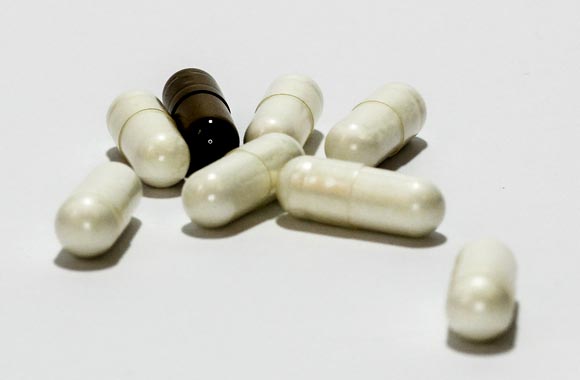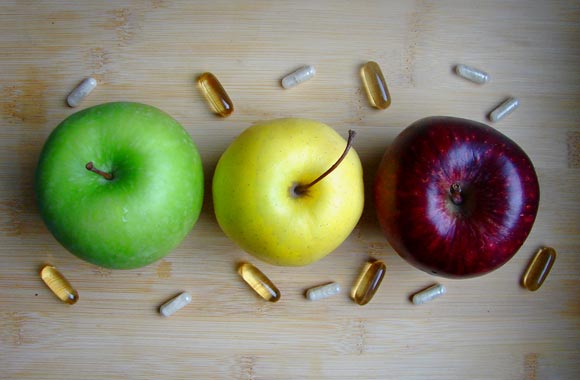Feed your brain with vitamins and amino acids supplements

One of the fundamentals for your brain health is amino acids supplements.
You can prevent many brain disorders like Alzheimer’s disease if you inculcate low fat, full of vitamins, and omega-3 fatty acid-rich supplements in your diet. Maintain the health of your brain with folic acid, CoEnzyme Q10, Alpha Lipoic acid, Gingko Biloba, Acetyl-L-Carnitine, Phosphatidyl Serine, and DHA. Your brain needs these to avoid diabetes, strokes, age loss, brain damage, and many other brain disorders. If you are desirable an ever young and healthy life with proper brain health, amino acids supplements are here to stay.
Vitamins and amino acids prove to nourish, feed and nurture your brain like nothing else. To save your brain from disease and decline, you must supply it with vitamins, particularly folic acid. Feed your brain with vitamins to not only protect your brain from toxic levels of homocysteine in your blood (that can potentially damage your brain cells) but also to save you from dementia and cognitive brain damage accompanied by slowing down the aging process.
Just like vitamins and minerals, amino acids are destined to promote your healthy lifestyle. They will nourish your brain in such a way that you will be able to sleep well, feel good, and will be able to fight off depression, anxiety, stress, and memory loss. Feed your brain with amino acids as they are the best healing acids ever discovered.
Amino acids have a dramatic effect on your brain. If you have sexual dysfunction Arginine will save you. If you suffer from insomnia Tryptophan is there to help you. When you need an energy boost Phenylalanine and tyrosine are bound to energize you. Moreover, Glutamine will provide you with the best cancer treatment. No doubt amino acids and vitamins are essential for the body as a whole but when you feed your brain healthy brain functioning is ensured.
Intake of amino acids like Glutamine, Glutamic acid, and Gamma-aminobutyric acid for your brain is bound to provide you sustenance for healthy brain functioning, vigorous mental activity, and a smooth brain relation with CNS. Taken collectively, they give your brain the refined material, the stimulus, and the control: the fuel, the speed, and the balance for brain functions.
Once you realize the importance to feed your brain with amino acids and vitamins you will never have to worry about weight gain or tiredness, headaches or unending pain, high blood pressure or insomnia, memory loss, or Alzheimer’s. Even epilepsy or minor seizures can be avoided by vitamins and amino acids. They will maintain the perfect metabolism of your brain by working as fuel, enhancing brain activity, and preventing brain malfunctions and disorders. They will uproot stress and tension out of your brain. They will keep you young by decreasing the rate at which you age along with combating many age-related deficiencies i.e. memory and hearing loss. Health starts at the control center of your body i.e. brain. Stay healthy, stay active.

How good are amino acid supplements for your brain health?
The human brain is a marvel of nature. It is more complex than any machine man has ever made. It performs tasks that seem impossibly difficult and achieves them with such efficiency that its seamless working and behavior are unparalleled and unmatched. The brain not only controls and regulates all the body functions but also gives us the thinking power which makes us superior to other living beings. For such a pivotal and central body organ, constant nourishment and revitalization are needed. So let us delve a little deeper and try to find out how we can improve our brain functions.
A balanced diet is an absolute necessity. But along with that, there are some constituents of your diet that directly reach the brain. How do they reach the brain? The answer is that your diet influences your brain through your bloodstream.
To understand the effect of diet on the brain, we have to understand the structure of the human brain. The brain is made up of nerve cells and interacts with the rest of your body via the nerve network spread throughout the body. This network conducts brain signals more fluently when the intake diet contains a healthy portion of proteins. Lack of protein in the diet is bound to result in the degradation of the performance of the brain. The reason for this is simple: a human brain’s predominant constituent is amino acids. And where are these amino acids found? They are the basic building blocks of proteins.
Our nervous system needs a protein layer to conduct the transmissions and broadcasts from the brain to the rest of the body. In simple terms, low-fat diet results in memory downfall and hindrance of other physical functions.
Now that we have established the importance of proteins for brain function, we must look for their sources of it. There are protein-rich foods found abundantly in nature, and they can help us with the enhancement of our brain to a certain extent. In today’s mechanical life it’s impractical to take food that is too rich in fat, as it might lead to certain health disorders like heart disease and high cholesterol levels. There is an optimal solution to this obstacle. And that solution is the intake of amino acid supplements. These supplements are tailor-made for the enrichment of the nervous system and brain. They have concentrated amino acids and are made to reach straight to the brain and provide the lacking nourishment to brain cells and neurons.
A huge advantage of these supplements is that they don’t require digestion and can act with almost 100% efficiency. Amino acid supplements use free-form, directed proteins and are perfect for improvement in intelligence and memory. Amino acid supplements can help with nervous disorders like autism, epilepsy, and Asperger syndrome. They enhance blood flow to the nervous system and brain, thereby increasing thinking capability. Recent studies have also shown that with the right kind of dietary supplements IQ level of a person can also increase and reach a much higher level than was previously thought possible.
Thus these supplements allow us to improve our skills and mental capacity without having any adverse effects on our health and body.

Amino Acids, Fuel For Our Brain And Body
Amino acids are one of the most vital parts of our diet. Not only diet, but they are also naturally present in our body. These are further classified into essential and non-essential amino acids based on their presence in the body. The essential ones are those which are not synthesized in our body so they should be taken from the diet. Amino acids perform various necessary functions in our body. They all are proteins. We all are aware of the importance of proteins to our bodies. There are more than 20 amino acids that exist. Each one carries vital functions and plays the main role in different physiological processes involving our energy, recuperation, temper, frame of mind, strength and muscle gains, brain function, and also in our quest for weight loss.
Amino Acids Helps in Improving Muscle Bulk
As we all know, most boys are very enthusiastic about bodybuilding. They spend lots of time in the gym making muscles. But they are generally unaware of the importance of proteins and amino acids for their muscles. Taking supplements or food rich in amino acids or proteins can help them a lot in the bodybuilding process.
Amino Acids Provide Energy
In the case of muscle activity i.e. during any sort of physical activity, ATP is used for energy purposes but when it exhausts, energy is provided by different means. Among these means is creatine which is composed of three amino acids, namely methionine, glycine, and arginine. These three amino acids act to keep our ATP as well as creatine phosphate levels high in the body. In this way, you get a good source of energy for strength and power.
Amino Acids Aid Fats Loss
To lose fats, two processes must be occurred to achieve this loss. These are the increased mobilization and the circulation of stored fats. The circulated fats should be transported to mitochondria where they are converted into energy. Many nutrients help the switch of fat to energy and the top among is the amino acid methionine. If it is present in sufficient amounts in the body, it will enable enhanced conversion. When we are trying to keep our dietary calories low, the branch chain amino acids, as well as glutamate, assist in providing the required energy and support to our immune system, liver, and muscles, which are vital to optimizing our body composition.
Important Source of Neurotransmitters
Different amino acids also provide important neurotransmitters function in our brain. Neurotransmitters are important chemicals that function to transmit messages between cells and neurons. The four major amino acids that act as neurotransmitters include gamma-aminobutyric acid (GABA), glycine, glutamic acid, and aspartic acid. GABA is the inhibitory neurotransmitter while glutamic acid is the excitatory neurotransmitter.
Miscellaneous Functions of The Amino Acids
There is no uncertainty regarding the importance of amino acids to our bodies. Other functions they carry out in our body include:
- Body cells repair
- Act as a source of energy when there is a deficiency of fats and carbohydrates
- Make enzymes
- Help in the transportation of different mediums
- Storage

Amino acids for the brain: DL-Phenylalanine and L-Glutamine
There are 300 naturally occurring amino acids (AA) but only twenty take part in the formation of proteins, plants as well as animals in origin. They are working substances in all cells. They make the protein more complex. They are linked by peptide bonds. They are also classified according to our body’s needs into essential and non-essential amino acids.
Essential ones are those that the body cannot make and they must be provided by the food. These are histidine, leucine, isoleucine, lysine, methionine, phenylalanine, threonine, tryptophan, and valine.
Non-Essential are those that the body can make, these are alanine, arginine, asparagines, aspartic acid, cysteine, glutamic acid, glutamine, glycine, proline, serine, and tyrosine.
Although all of them share a common structure, they differ in size, shape, electrical charge, and other characteristics because of differences in their side chains. The amino acid sequence can be explained as follow; if a person is to walk along a polypeptide chain, each stepping stone will be one of the 20 odd different AA. The first step stone may be methionine. The second may be an alanine. The third may be a glycine and a fourth a tryptophan and so on. Walking along another polypeptide path, a person may step on proline, then valine. It also describes that their sequence within the protein varies.
Even though they are needed to do the work that only they can perform i.e. build vital proteins but they can be sacrificed to give energy and glucose if needed. They can be used to make fats e.g. if the person eats too much protein than his body needs, AA is deaminated, the nitrogen is excreted and the remaining carbohydrate fragments are converted to fats and stored for later use.
They are even helpful in evaluating the food’s protein quality. They can further be used to make other essential compounds. Likewise, they have a wide range of effects, particularly important effects on the brain areas given.
Effects of DL-Phenylalanine and L-Glutamine Amino Acids over the Brain.
DL-phenylalanine: is a nutritional supplement and acts as an analgesic and anti-depressant. It is actually the mixture of D-phenylalanine and L- phenylalanine.
It provides an analgesic effect by acting on the brain. It does so by blocking the degradation of DL-phenylalanine of endorphin with the help of the enzyme carboxypeptidase.
As we know L-phenylalanine is a precursor in the synthesis of epinephrine and norepinephrine and decreased levels of them result in depression in an individual. So its antidepressant effect is because it blocks endorphin degradation, this thing leads to inhibition of GABA in the midbrain and the result is increased dopamine release.
L-Glutamine: It is also a nutritional supplement and it can easily enter the brain where it is used for energy and is a precursor to nerve transmitters both excitatory and inhibitory. If the brain does not get glucose, glutamine can be metabolized for energy by the brain as compensation. L-Glutamine also plays an important role during stress and in optimum protein metabolism and utilization both in the brain as well as in the gastrointestinal system. People who use them often report being happy and energetic and less fatigue.

Vitamins for brain health
The human brain is an intricate and fragile structure. A lot of factors add up to form a perfectly well-balanced brain. Even a minor lack of one constituent can lead to some major disorder or degradation of brain functions. We use our brains every moment of our life. We use it when we hear, see, eat, think, sleep or even breathe. Simple logic points out that something that works as constantly and efficiently as our brain, must have some requirements and needs to keep it in a healthy, working state. For our brain, these basic needs are proper blood supply to it and a balanced amount of nutrients and vitamins present in that supplied blood. The importance of other nutritional components is undeniable, but vitamins have a role of great importance. Each of us should take vitamins for brain health, no matter if we take them from rich vitamins foods or vitamins-based supplements.
It is a common observation that normally as people get older their mental capacity starts to reduce. Recently it has been found through various studies that the main reason for this occurrence is the reduction in brain size with the increase in age. As a person grows older, brain cells start to die out. Some cells, that are not dead, become detached from the nervous system and are rendered useless. Thus aging makes even the most intelligent of people succumb to a lowering of thinking capacity and a reduced IQ level.
It is of absolute importance to find a solution to this problem to keep the brain healthy. Through years of academic research, it was found that an increase in the level of Homocysteine (an amino acid) is responsible for this alarming phenomenon of brain shrinkage. In simple terms, higher levels of homocysteine in the bloodstream lead to a decline in brain health. But luckily there is a counter to homocysteine that can reduce its level in the brain and can rectify the situation efficiently. And that countermeasure is the intake of vitamin B. Certain members of this family can reduce the amount of harmful homocysteine and can save retard the shrinkage of brain cells by up to 25%.
Some vitamins have the trait of mirroring the activity of hormones. That means they can act as stimulants to the brain and can improve the working of brain functions. One such vitamin is Vitamin D (extracted naturally by sunlight). Vitamin D acts as one of the worst problems facing brain health, that is, inflammation invading the nervous system and neurons. Recent studies have also led to the belief that vitamin D can also enhance intelligence and cognition, thereby outputting improved overall functioning of the brain.
A major reason for brain cell damage and termination is the oxidization of these entities. Vitamin E and C act as ant oxidizing agents in the brain and keep the brain fresh and up to the mark. Vitamin E also helps in improving blood circulation to certain parts of the human brain. Vitamins are not associated as much with brain health as they should be, because they are like the maintenance crew which keeps your brain fit and healthy.





